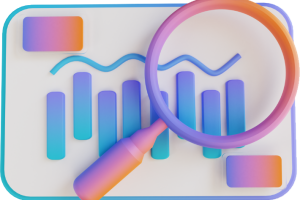CONSTELLATION
Introducing Constellation OS
Constellation OS serves as the cutting-edge backend platform for OODA World. Designed with modern computing in mind, it’s built on a micro-services architecture and integrated with a data lake.
This ensures both flexibility and centralized data management. Capable of handling up to 1 million events per second, Constellation OS stands as a beacon of performance and efficiency in the digital tech landscape.
FIVE OBVIOUS REASONS TO ADOPT CONSTELLATION OS
Demystifying technical choices empowering open, scalable and high performance solutions
Why a Micro-service architecture?
Micro-service architecture offers a modular design, allowing individual components to be developed, deployed, and scaled independently. This promotes agility in development and deployment, enhances system resilience by isolating failures, and facilitates easier updates and maintenance.
Moreover, it supports diverse technology stacks for different services, catering to specific needs and optimizing performance.
Why a Kafka Communications bus?
Kafka provides a high-throughput, fault-tolerant, and scalable messaging system, making it ideal for real-time data processing and analytics. Its distributed nature ensures data durability and redundancy.
Additionally, its ability to handle large volumes of events in real-time makes it a preferred choice for systems demanding high performance and reliability.
Why a Kafka Communications bus?
Additionally, its ability to handle large volumes of events in real-time makes it a preferred choice for systems demanding high performance and reliability.
Why a NoSQL database?
MongoDB is a NoSQL database that offers flexibility with its schema-less design, allowing for rapid iteration and adaptability to changing data structures. Its document-oriented model is intuitive and can handle varied data types, making it suitable for diverse applications.
MongoDB provides horizontal scalability through sharding, ensuring performance under large data loads. Additionally, its built-in replication enhances data availability and resilience.
Why an OpenAPI 3.0 specification language?
OpenAPI 3.0 provides a clear, standardized framework for defining APIs, ensuring consistent communication and integration between various services and applications within the data lake ecosystem. Its robust documentation capabilities enable developers to comprehend APIs quickly, facilitating faster development and reducing time-to-market for new features and applications.
Additionally, OpenAPI supports for both JSON and YAML formats enhances flexibility and ease of use. This standardization not only future-proofs the platform but also fosters a vibrant developer community, encouraging innovation and the creation of diverse, high-quality applications within the data lake environment.
Why an OpenAPI 3.0 specification language?
Additionally, OpenAPI supports for both JSON and YAML formats enhances flexibility and ease of use. This standardization not only future-proofs the platform but also fosters a vibrant developer community, encouraging innovation and the creation of diverse, high-quality applications within the data lake environment.
Why a Kubernetes platform?
Kubernetes is the top choice for container orchestration due to its automated deployment, scaling, and self-healing features. It provides seamless multi-cloud and hybrid cloud support, simplifies configuration, and offers robust monitoring, ensuring efficient and resilient management of containerized applications.
Its large community support enhances its appeal, making it the preferred choice for modern, efficient and agile infrastructure management.
Key benefits of constellation OS
Micro-services
Architecture

offers flexibility and
promotes system resilience
High
Performance

Handles up to 1 million
events per second
Centralized
Data

Integrated data lake for
real-time analytics
Modern
Tech Integration

Uses Kafka and MongoDB
for robustness and efficiency
Ease of
Deployment

Rapid installation and
configuration with Linux
Optimized
CPU Consumption

40% less CPU usage vs
competitors, reducing operational costs
INCLUDED IN
all our solutions





& COMMUNITIES




MANAGEMENT









& COMMUNITIES






MANAGEMENT



OODA Software Suite
AI-Powered 3D Digital Twin Platform for Real-Time Analysis
THE backend powering OODA & VUCA
Our SOLUTIONS
Industries focused solutions
Explore

Obvious Technologies is a French company founded in 2019, developing OODA World, a Command & Control software suite for security and mission-critical organizations.
headquarter - FRANCE
92000 Nanterre, France
Regional Office - UAE
Jumeirah Lake Towers Cluster T
Unité 709 Dubaï, UAE
OODA Software Suite
AI-Powered 3D Digital Twin Platform for Real-Time Analysis
THE backend powering OODA & VUCA
Our SOLUTIONS
Industries focused solutions
Explore

Obvious Technologies is a French company founded in 2019, developing OODA World, a Command & Control software suite for security and mission-critical organizations.
headquarter - FRANCE
92000 Nanterre, France
Regional Office - UAE
Jumeirah Lake Towers Cluster T
Unité 709 Dubaï, UAE





